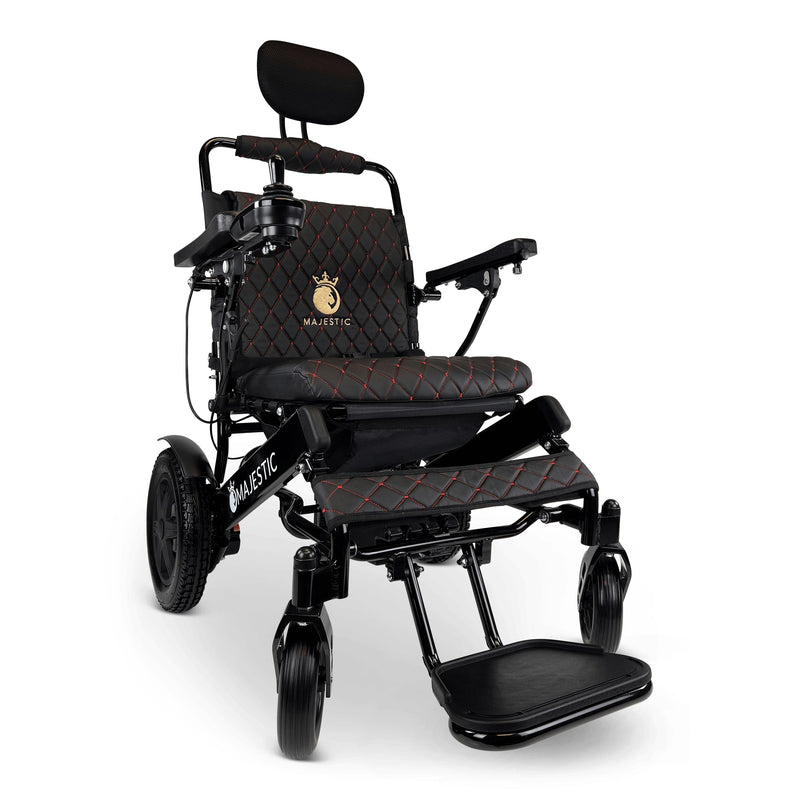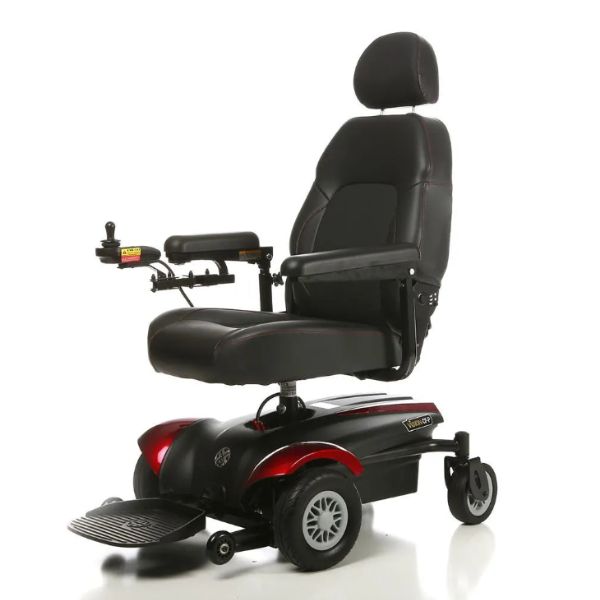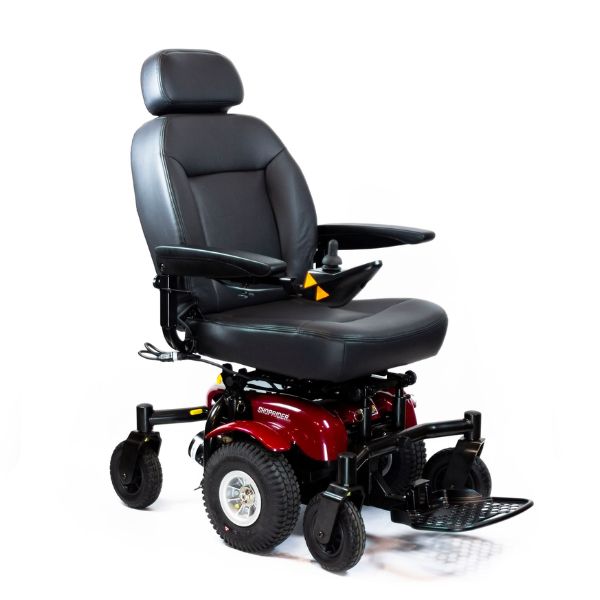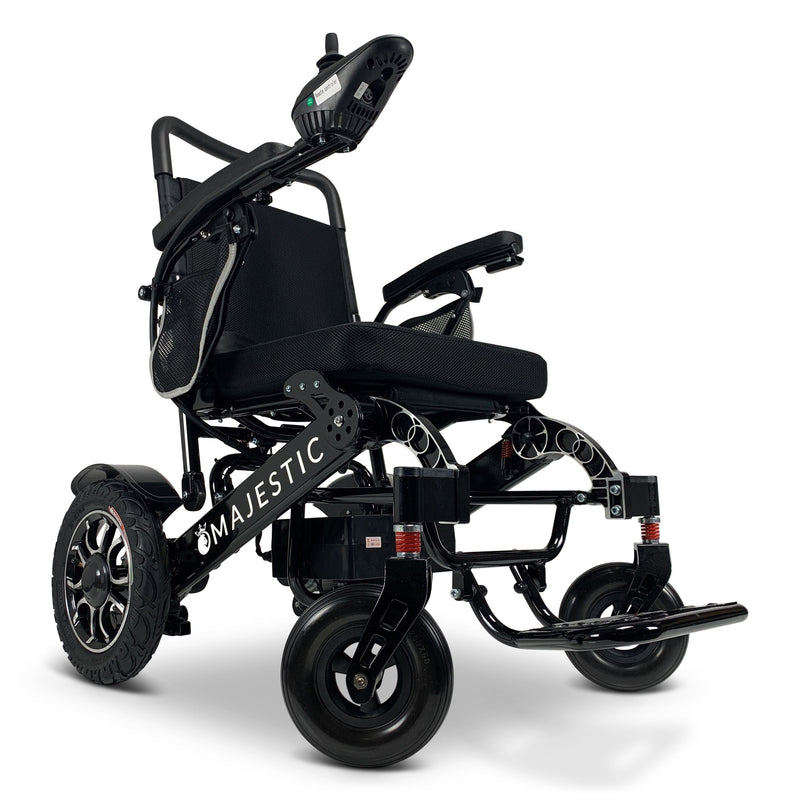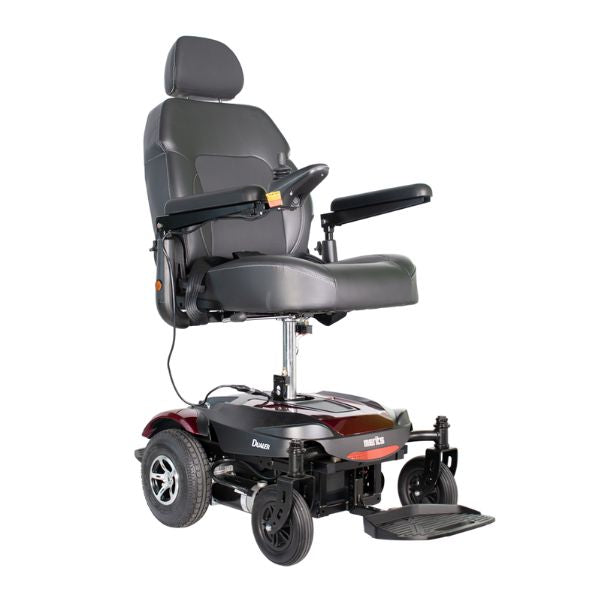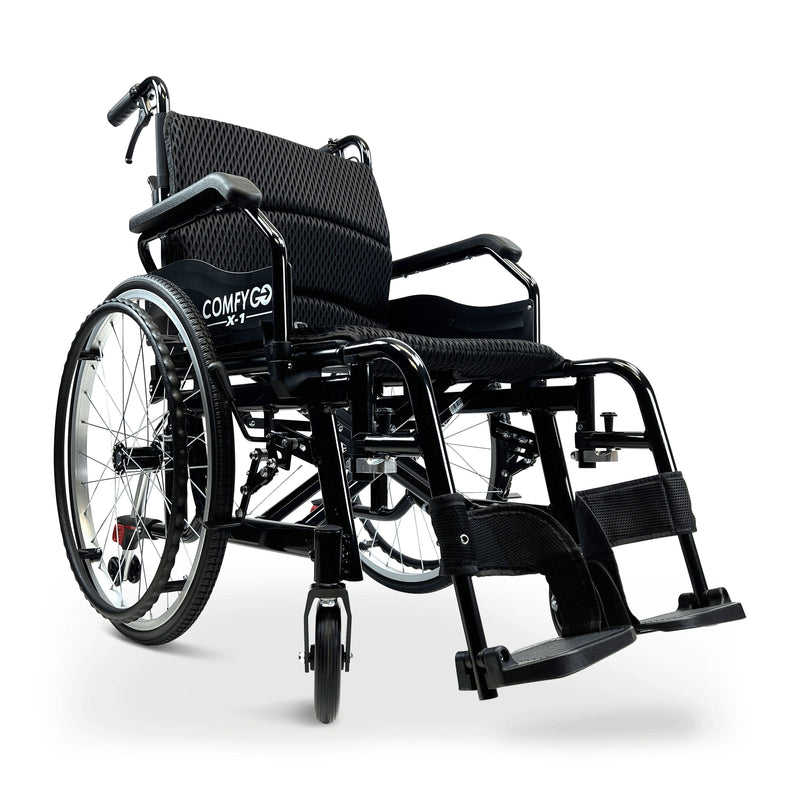Electric Wheelchairs for Sale - Everything You Need To Know To Make An Informed Purchase
With a thousands of different of options of electric wheelchairs to choose from, which one works best for you? This article will tell you anything and everything about wheelchairs to help you make an informed decision. This article discusses what is an electric wheelchair, the different types, features to look for, should you choose a wheelchair or a scooter, the benefits of using a wheelchair, and more.
What Is A Electric Electric Wheelchair?
Electric wheelchairs are modern mobility aids. They are equipped with electric motors and come with a comfortable seat, and you control them using a simple joystick or control panel. Plus, they're powered by rechargeable batteries, just like your smartphone or laptop. These wheelchairs are designed to provide you with greater independence and ease of movement, making it simpler and more comfortable for you to get around, whether it's at home or outdoors.
Types of Electric Wheelchairs
Portable
Portable electric wheelchairs are also known as travel wheelchairs or folding wheelchairs. Portable wheelchairs are lightweight and designed for you to experience the joy of travel and enhanced independence. These are designed to carry 250-350 pounds. Some portable wheelchairs feature Auto-Reclining and high mileage range (up to 26 miles). These generally have less weight capacity when compared to other types.
Full-Sized
Full-sized electric wheelchairs are larger and more robust compared to the portable ones you've seen. They come with features that ensure you can sit comfortably for longer periods. Some feature elevating seats for increased mobility. Additionally, they have powerful motors that make maneuvering easier, even in tight spaces.
These wheelchairs also provide a longer driving range, meaning you can travel greater distances on a single charge. This can be especially handy if you like to explore your neighborhood or spend time outdoors. Many people find these wheelchairs to be reliable and versatile, making them a suitable choice for their daily activities and mobility needs. They're built to handle extended daily use, whether you're inside your home or outdoors.
Heavy-Duty
Heavy-Duty Electric Wheelchairs are also known as bariatric wheelchairs and are the most capable type of wheelchairs. These are designed to hold a much higher weight capacity (Up to 600 pounds) and will get you anywhere you desire, indoor or outdoor. These wheelchairs include top-of-line features including elevating seats that lift up to 10 inches. They are built with reinforced frames, more powerful motors, and sturdy components to provide reliable and safe mobility for heavier users.
Standing Electric Wheelchairs
Standing Electric Wheelchairs are designed for people with very limited mobility and are a savior to people who need the extra strength to experience standing again. Some benefits include: improved posture, enhanced social interaction, and better access to various environments. Standing wheelchairs are especially useful for individuals with mobility limitations who wish to enjoy a more active and dynamic lifestyle while maintaining the convenience of a powered wheelchair.
These have very similar features to a Full-Sized wheelchair paired with the standing capability.
Features To Look For When Buying An Electric Wheelchair
Joystick controls: People who don't have the strength to have their arms extended in front of them for long periods of time have a joystick placed comfortably and conveniently on their arm rest requiring very little movement.
Elevating Seats: Electric wheelchairs have the ability to have elevating seats which are critical to many people who need the increased mobility for getting in and out of bed, using the restroom, or any circumstance that applies.
Auto-Reclining Feature: This allows to adjust the position of their wheelchair without the need of external assistance. This can offer numerous benefits including enhanced comfort, pressure relief, posture support, increased independence, and improved engagement in activities. Auto-reclining is sold exclusively with our partner's comfygo electric wheelchairs.
Weight Capacity: This specifies the maximum amount of weight your wheelchair can hold. This varies anywhere from 250lbs - 600lbs
Net Weight: This is the amount of weight the electric wheelchair weighs. for travel-goers, the lighter the net weight, the better.
Battery Range: The battery range specifies how long your electric wheelchair can go on one charge. Wheelchairs can go up to 55 miles on one charge.
Turning Radius: This massively impacts your maneuverability. The turning radius of a wheelchair is the minimum space required for the wheelchair to make a circular turn. The smaller the radius, the less room the chair needs to make a U-Turn. For example, a wheelchair with a turning radius of 20" requires less room to make a U-Turn when you compare it to a wheelchair with a turning radius of 30". Generally, the turning radius on all wheelchairs are great, making it amazing for indoor use.
Ground Clearance: This is measured as the space between the ground and the undercarriage. For outdoor use, higher clearance is best to avoid any potential damage to the undercarriage and makes it easier to navigate over obstacles like uneven terrain, bumps, or small curbs. Lower clearance provides a stable ride since the rider has a lower center of gravity.
Maximum Rated Incline: This indicates the maximum incline at which the wheelchairs can safely climb. You likely won't come across an incline higher than 4 degrees when in public, but depending on your situation and area, this may be a key feature to take note of.
Speed: Most wheelchairs top speed is 4 - 8 m.p.h.
You can find these key features on the top of our descriptions on all of our electric wheelchair product pages and you may find even more features on the "specifications" tab.
Mobility Scooters vs Electric Wheelchairs - Why Do People Choose Wheelchairs over Scooters?
The short answer is: People will choose wheelchairs over scooters because of the exclusive features regarding comfort and convenience which appeals to people with very limited mobility.
Electric wheelchairs and mobility scooters are close in capabilities, but there are key features that wheelchairs offer and mobility scooters do not.
Both Scooters and Wheelchairs Offer
- Outdoor Capabilities
- High Battery Range
- High Weight Capacity
- Similar Net Weight
Scooters offer
- High top speeds
- Generally less expensive
- Some people purchase for recreational use
Wheelchairs offer
- Phenomenal indoor capabilities because of the tight turning radius
- Easy-control features for individuals with very limited mobility
- Exclusive features: Elevating seat, joystick controls on your arm rest, standing capabilities
Choosing An Electric Wheelchair Based Off Your Wants And Needs
It helps to narrow down you options by asking yourself a few questions.
- Is there anything I absolutely must have on my wheelchair?
- Will I be using this mainly indoors, outdoors, or both?
- What weight capacity do I need?
- What battery range do I desire?
- What unique features do I want, if any? Example of this is: seat lifts, auto-reclining, standing capability, joystick controls
- What is my budget?
Example: if you want a wheelchair for both indoor and outdoor scooter with a weight capacity of 500 pounds, 32+ mile battery range, a 10" elevating seat, $4000 budget, then a heavy duty wheelchair would be a great option for you
Benefits of Electric Wheelchairs
Owning an electric wheelchair can offer numerous benefits, particularly for individuals with mobility challenges. Here are some of the key advantages:
-
Independence: Wheelchairs provide users with a high degree of independence. They can move around and perform daily activities without relying on others for assistance.
-
Reduced Physical Strain: Unlike manual wheelchairs, wheelchairs are powered, eliminating the physical effort required for self-propulsion. This is especially beneficial for individuals with limited upper body strength or stamina.
-
Increased Mobility: wheelchairs are designed to cover longer distances more quickly than manual wheelchairs, enabling users to engage in a wider range of activities and explore their surroundings both indoors and outdoors.
-
Customization: Many wheelchairs offer customizable features, including adjustable seating positions, joystick sensitivity, and specialized seating options to enhance comfort and control.
-
Improved Maneuverability: Wheelchairs often have advanced maneuvering capabilities, allowing users to navigate tight spaces, make sharp turns, and overcome obstacles with ease.
-
Safety Features: These wheelchairs are equipped with safety features such as anti-tip mechanisms, stability controls, and seatbelts to prevent accidents and ensure a secure ride.
-
Health Benefits: Owning an wheelchair can help prevent secondary health issues associated with prolonged manual wheelchair use, such as shoulder pain, repetitive strain injuries, and pressure sores.
-
Psychological Well-Being: Wheelchairs can boost users' self-esteem and mental health by promoting independence, reducing dependence on others, and enabling greater participation in social and recreational activities.
-
Access to Public Spaces: Many public places and buildings are required by law to be wheelchair-accessible, and wheelchairs facilitate access to these spaces.
-
Convenience: Wheelchairs offer the convenience of swift and effortless mobility, simplifying daily tasks like shopping, going to appointments, and running errands.
-
Travel Opportunities: Some wheelchairs are designed for travel, making it easier for users to explore new places and maintain their freedom during vacations or trips.
-
Improved Quality of Life: Overall, wheelchairs can significantly enhance the quality of life for individuals with limited mobility, allowing them to stay active, engaged, and connected to their communities.
Owning a wheelchair is all about preserving your independence and embracing life to its fullest. It represents an investment in your overall well-being and a means to continue pursuing your passions and daily activities, regardless of any mobility challenges you may face.

Can You Purchase A Wheelchair With Medicare?
Yes, you can, but restrictions apply.
Medicare provides coverage for 80% of the expenses associated with a wheelchair, assuming you meet their criteria for "medical necessity." Following the payment of your annual Part B Medicare deductible, you'll be responsible for covering the remaining 20%. It's important to note that Medicare's approval for a mobility scooter is relatively rare because most individuals do not meet their specific eligibility requirements, which include:
-
Obtaining a written order from a physician confirming your medical condition, which hampers your ability to move within your residence.
-
Demonstrating a health condition that significantly impedes your mobility in and around your home or apartment.
-
Proving that, even with the aid of a cane, walker, or rollator, you are incapable of performing daily living activities such as bathing, dressing, and getting in and out of bed or a chair without relying on a mobility scooter.
-
Ensuring that you can safely operate a mobility scooter on your own or have constant assistance available for its use.
-
Confirming that both your attending physician, who is treating your medical condition, and your mobility scooter supplier are enrolled in Medicare.
-
Ensuring that the electric mobility scooter can navigate freely within your home, including the ability to easily pass through all doorways.
You can view the requirements under Medicare Part B
When your approved for a wheelchair, you have a very limited amount of options. You can call1800MEDICARE to see if you are eligible for Medicare to reimburse your wheelchair. At this time The Mobility Home can not accept payments from Medicare.









